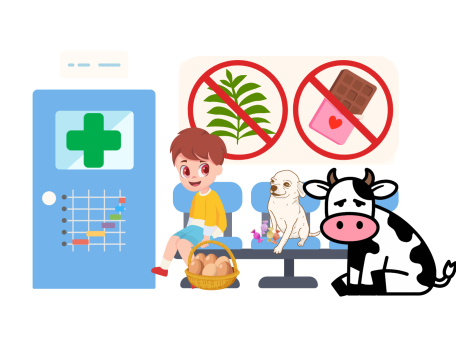© Pint of Science, 2025. All rights reserved.
Just off the Chester High Road lie some of the world's leading animal hospitals. If you want a fun and informative peek behind the surgical curtains of what goes on at the University of Liverpool's School of Veterinary Science, come along to this evening and find out more. You will get a flavour of some of our clinical and research expertise, from dogs with broken bones, to poo-y cows, sore ponies, and artificial intelligence. Join us for a pawsome evening!
It's Hip and Humerus
Dr Thomas Cox
(Senior Lecturer in Small Animal Surgery)
Do you want to have a look at what goes on behind the scenes at the University of Liverpool's world-renowned Small Animal Teaching Hospitals orthopeadic referral service? In this talk, Tom will discuss the day-to-day cases that are seen, from Osteoarthritis to Fracture repair, and even Total Hip Replacements. He will present a variety of fun and interesting cases - you'd be barking to miss it!
Wasting Away
Dr Kate Ogden
(Resident in Livestock Health and Welfare)
Cows can experience a contagious and fatal disease called Johne's disease, which is characterised by severe diarrhoea and chronic wasting. Many cows become infected as calves and only show signs of illness when they become adults. Kate will discuss what efforts are being made to control and eliminate Johne's, and how new research can help keep calves safe from this horrible disease.
Why the Long Face?
April Lawson
(Lecturer in Equine Medicine)
Recognising pain in horses is complicated and they disguise pain more readily, being prey animals. In this talk, we will cover pain-associated behaviours as well as covering indicators of more subtle signs of pain (including pain faces). Better hoof it down to this talk to find out more!
The Fur Files
Dr P-J Noble
(Senior Lecturer in Small Animal Internal Medicine)
We collect veterinary clinical notes about pets from over 500 UK clinics. We can use these records to understand the health of the UK pet population. However, these records are often written with poor grammar, spelling and use of abbreviations. With over 10 million records, we need to automate screening for disease (we can't read them all!). Teaching machines to read all the notes and spot new features or trends will allow us to watch out for disease outbreaks and other important health challenges that can also affect people.
Map data © OpenStreetMap contributors.
Other Hinderton Arms events
2025-05-19
Pints, Pups, and the Planet
Hinderton Arms
Chester High Road, Neston, Liverpool, CH64 7TA, United Kingdom


